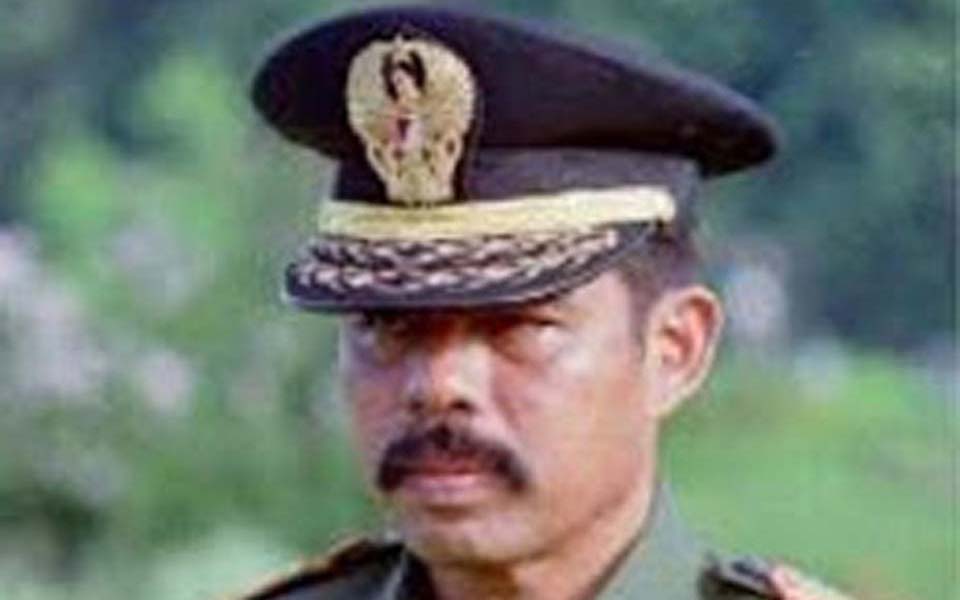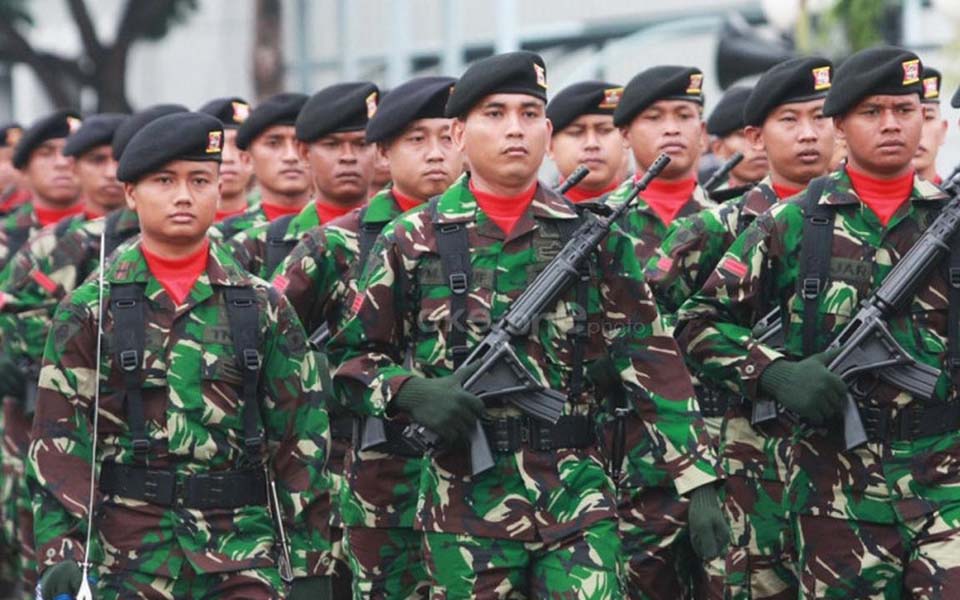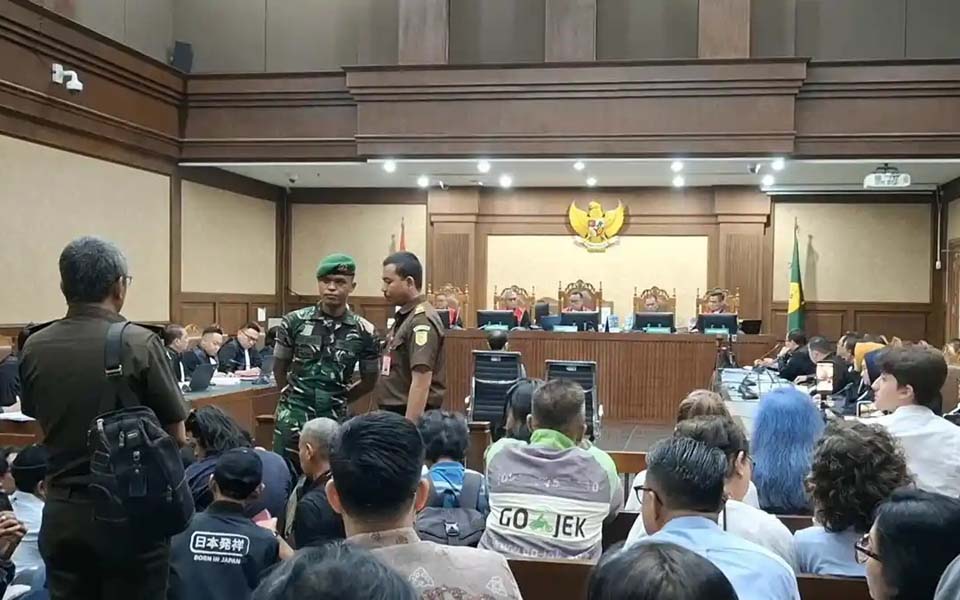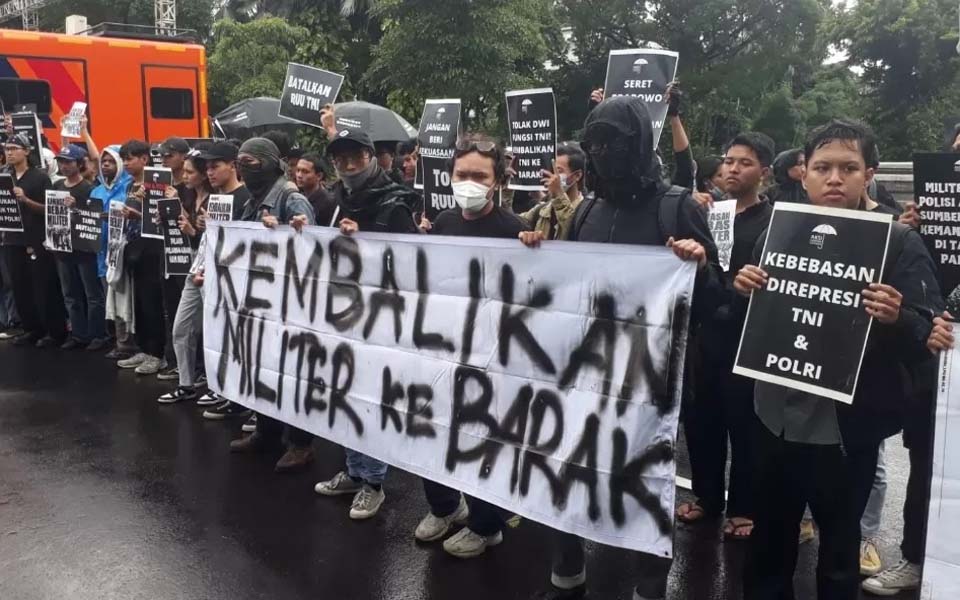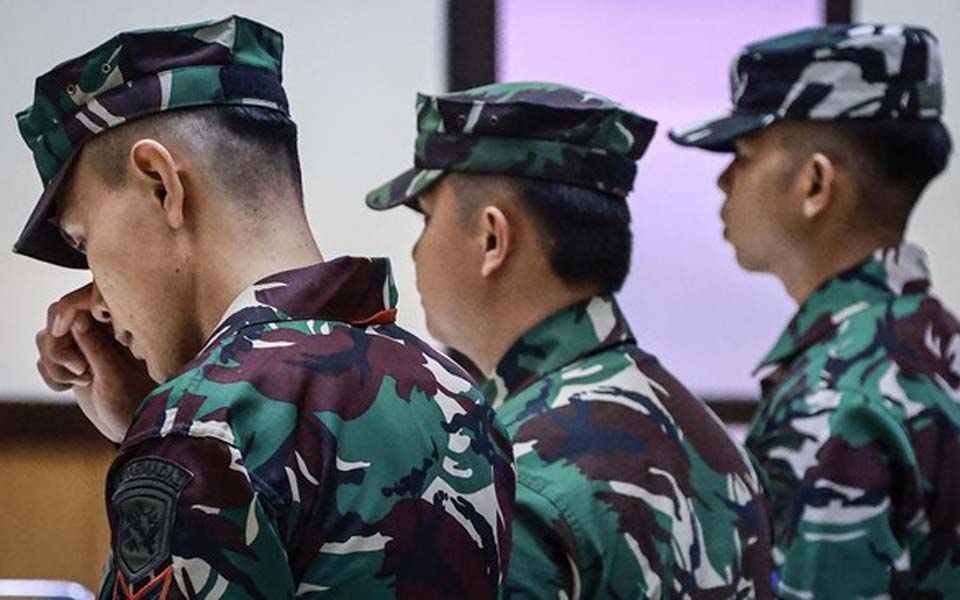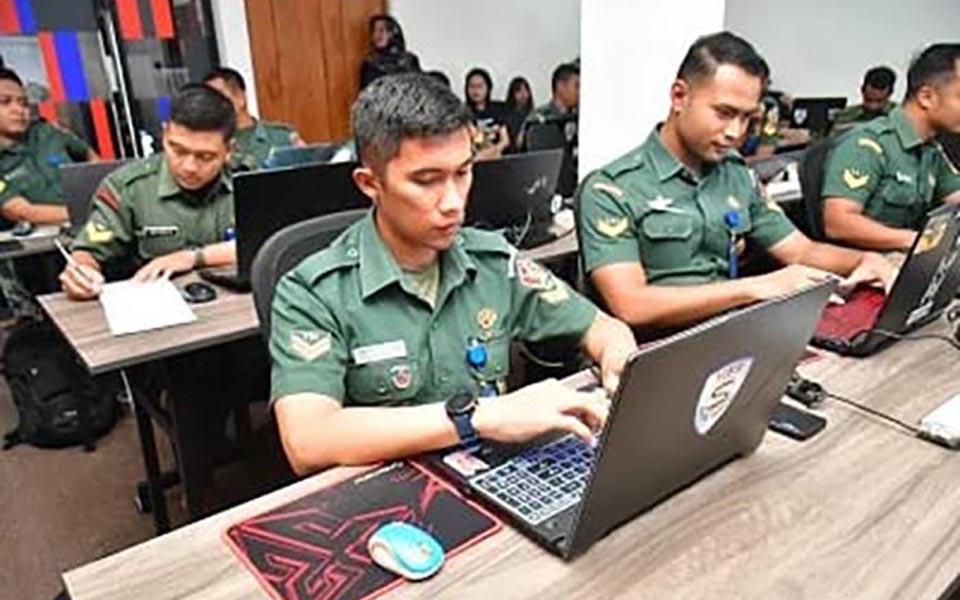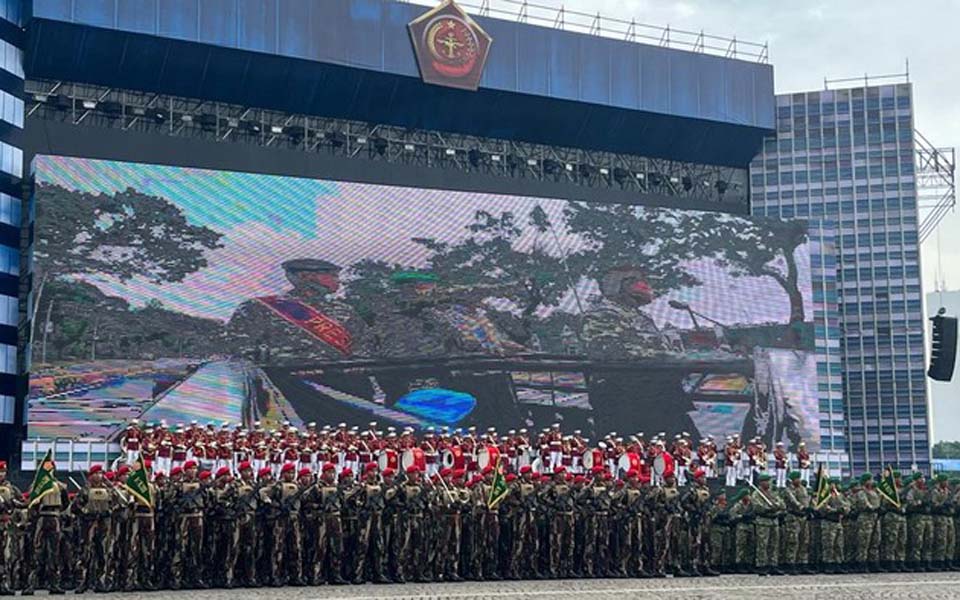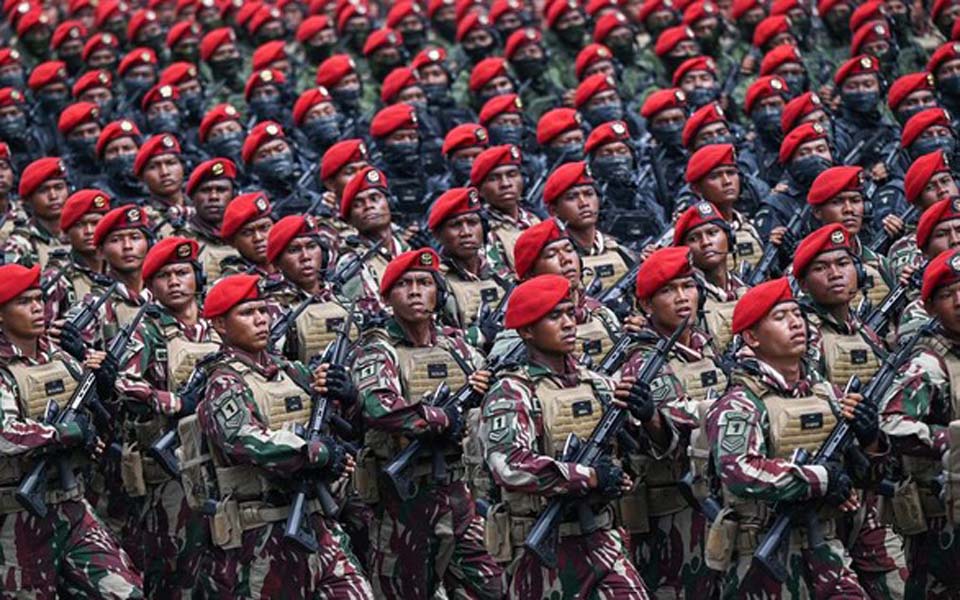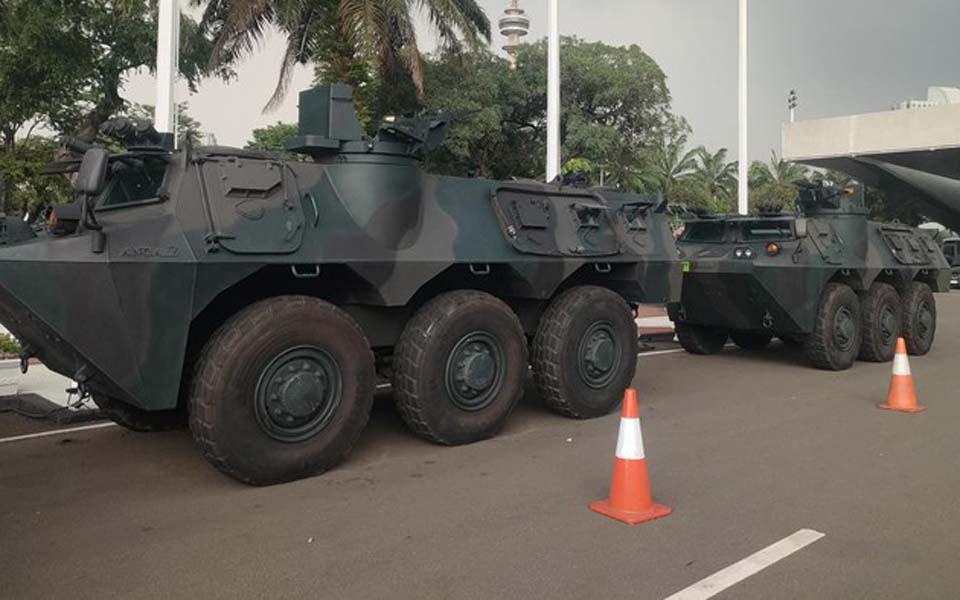Kompas – The head of the army’s information office, Brigadier General Hotmangaradja Pandjaitan, has confirmed that they have already established an extra-structural organisation at every level of the TNI’s (Indonesian military) territorial command, which will be tasked with and function in the same manner as the anti-terror desk at the coordinating ministry for political, legal and security affairs.
Pandjaitan conveyed this when contacted by Kompas on Monday November 7. The new bodies have been formed at each level of the territorial command (Koter), starting from the Regional Military Command (Kodam), the Military Command at a level below the residency (Korem), the District Military Command (Kodim) to the Sub-District Military Command (Koramil).
“Their members will be taken from functional staff. Of course it is not very special because its form is like an event committee for a celebration. They could come from intelligence, planning, territorial or even logistical staff”, he said.
According to Pandjaitan, the duties of the “anti-terror desks” will be to compile and process intelligence data on the handling and prevention of terrorism. At each command, they will comprise 10 members. At the Kodam level, the desks will be headed by the regional military chief of staff.
The anti-terror desks at the Koter level will only have the authority to carry out the functions of curbing and preventing terrorist acts, while the authority to arrest and question suspect will remain in the hands of the police. “The anti-terror desks will conduct intelligence work in coordination with the police”, said Pandjaitan.
Meanwhile the deputy chair of the House of Representatives (DPR), Zaenal Ma’arif, said in Solo (Central Java) that the formation of the anti-terror desks by the army should have waited for prior consultation with the DPR. “The people are still traumatised by the TNI’s role in the past so this plan should have been explained beforehand”, said Ma’arif.
The policy to establish the anti-terror desks was also criticised by the coordinator of the Commission for Missing Persons and Victims of Violence (Kontras), Usman Hamid. Speaking on Tuesday he said the formation of the anti-terror desks has the potential to trigger social unrest bearing in mind the public’s trauma over the involvement of TNI personnel in social problems in the past.
According to Hamid, the policy demonstrates the government’s idleness in taking concrete action. Hamid suspects that this is an endeavor by the TNI to project an image overseas that they are really serious about dealing with terrorism. “In reality, there are many simple things which could be done to uncover terror [plots] and the bombings in numerous places, which strangely keep reoccurring”, said Hamid.
The government and security forces persist in feeling that they lack the authority to handle terrorism. While in fact existing legislation and laws are already sufficient. The problem is, it remains for the government to evaluate what has been done well and correctly.
For example, Presidential Decree Number 5/2005 on terrorism and Government Regulation Number 24/2003 on procedures for the protection of witnesses, investigators, prosecutors and judges in cases of terrorism are still valid. “If the problem is located with the security forces’ capability, yeah replace them with [those] who are more competent, there is no need to form anti-terror desks at Koter”, he said.
The police for example, have never demonstrated any success in investigating the widening distribution network of explosives. It has never been clear were the TNT came from that was found in the bombings in Kuta and Jimbaran and how could have circulated freely. (WHY/DWA)
[Translated by James Balowski.]





